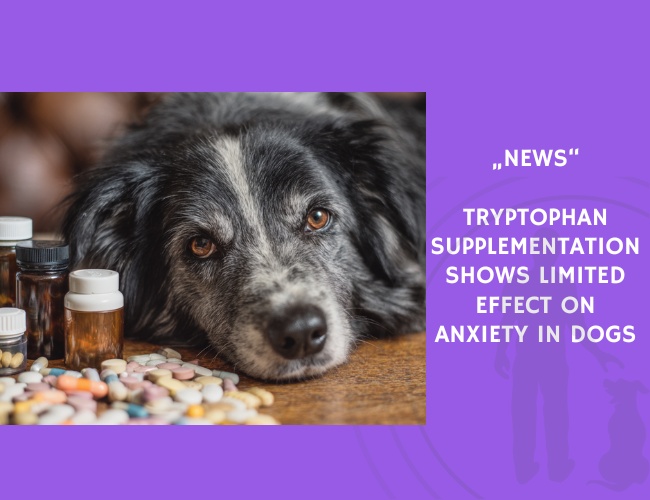Sofyan (2024) critically reviewed two controlled trials that evaluated the role of tryptophan supplementation in reducing anxiety-related behaviors in adult dogs. One study used a randomized, double-blind, placebo-controlled design, while the other employed a single-blind, placebo-controlled approach. Both investigated behavioral outcomes and physiological stress markers.
The results were mixed. One study found no significant improvement in anxiety or fear-related behaviors when tryptophan was added to the dogs’ diets under household conditions. The other study reported that owners observed lower anxiety-related behavior in their dogs; however, this did not correspond with significant changes in cortisol levels as measured by urine cortisol-to-creatinine ratios.
Overall, the evidence was rated as moderate, and the review concluded that while tryptophan may have some potential as a supplementary aid, it is insufficient as a sole treatment. The findings highlight the need for integrative approaches, combining dietary interventions with behavioral therapy and other strategies to effectively manage canine anxiety.
Source: Sofyan, L. (2024). In adult dogs is supplementary tryptophan in the diet effective in reducing signs of anxiety? Veterinary Evidence. Author: L. Sofyan. Journal: Veterinary Evidence.










